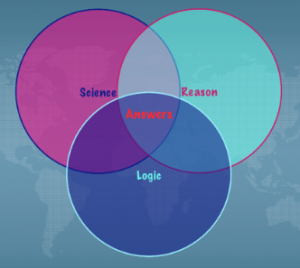I preached last night on the power of focus in transforming our lives. When we look at Jesus we see a perfectly and utterly focused life, focused on the purposes and priorities His Father had for His earthly life. He calls us to that same focus.
 The title of this post is a quotation from Qui-Gon Jinn in Star Wars Episode I: The Phantom Menace. While it might not be 100% true that we’re determined by our focus, we are certainly deeply impacted by it, in a number of ways. Last night I shared 5 of those ways.
The title of this post is a quotation from Qui-Gon Jinn in Star Wars Episode I: The Phantom Menace. While it might not be 100% true that we’re determined by our focus, we are certainly deeply impacted by it, in a number of ways. Last night I shared 5 of those ways.
1. Focus brings FREEDOM
Jesus is going great guns. He’s healing the sick, casting out demons, the whole works. He’s doing this in Capernaum, and the townsfolk want Him to stay. Why wouldn’t they?! His response?
“I must go and proclaim the good news of the kingdom of God to the other towns also, because that is why I was sent.” (Luke 4:43)
He basically says ‘no’. I’m not very good at that. If someone asks something of me, I want to say ‘yes’. I want to help them. Jesus could say ‘no’ because He’d said ‘yes’ to something else. He’d said ‘yes’ to the purposes God had for Him, and He was utterly focused on them.
That meant He was free from the burden of having to say ‘yes’ to everyone, and from worrying what folk thought. He was focused on a different audience. What freedom!
2. Focus brings ORDER
My life is busy. I’m not special in that. I’m sure yours is too. There will be lots of stuff going on, lots of things you could do. How do we work out which to prioritise?
 For Jesus, we see very clearly that His focus on His purpose led to a clear ordering of priorities. In Mark 7:24-30 He has a conversation with a non-Jewish woman who wants her daughter healed. What He says could appear racist, but it’s not. He tells her, cryptically and evocatively, that His message must be preached first to the Jews, then to Gentiles.
For Jesus, we see very clearly that His focus on His purpose led to a clear ordering of priorities. In Mark 7:24-30 He has a conversation with a non-Jewish woman who wants her daughter healed. What He says could appear racist, but it’s not. He tells her, cryptically and evocatively, that His message must be preached first to the Jews, then to Gentiles.
It’s not that He had no dealings with Gentiles – he had plenty, and He does heal her daughter! But He was so focused on His purpose that He knew what came first and what came second. He could articulate that order, and live accordingly.
3. Focus brings COMMITMENT
Being focused on God’s purposes for our lives can bring hardship. It can lead us to places that are difficult. The passage in Philippians 2 which describes Jesus’ humility in becoming ‘obedient to death, even death on a cross’ demonstrates real determination and commitment.
He leaves the glories of His heavenly throne to become a human. To become a servant. To become nothing. To become dead. That takes commitment. But the passage starts with His focus. He…
“did not consider equality with God something to be used to his own advantage” (Philippians 2:6)
He’s not focused on the things that aren’t going to help Him achieve His purposes. He’s focused on what will, which is the humility of the incarnation and the humiliation of the cross. That focus is what enabled Him to commit to the cause.
4. Focus brings USEFULNESS
But that’s not the end of the passage. Paul continues with a mighty ‘Therefore’ and then goes on to articulate all the fruit of Jesus’ achievements. God is glorified. People are able to bow before Him. He is restored to His rightful place. Through His commitment to completing His work, redemption and salvation come.
If He’d veered off and done something else – written a book, settled down, kept up the carpentry (all good things) – He wouldn’t have actually achieved what was meant for Him. His focus brought commitment, and commitment made Him useful.
I quoted a Native American saying last night which many found helpful:
“If you chase two rabbits, both will get away.”
5. Focus brings STAMINA
I want a focused life, if it brings all these things! But I also know a life focused on pursuing God’s purposes will be a lot of hard work. I don’t want to drop before the finishing line, and I believe focus brings the stamina I need. Read this:
‘And let us run with perseverance the race marked out for us, fixing our eyes on Jesus, the pioneer and perfecter of faith. For the joy set before him he endured the cross, scorning its shame, and sat down at the right hand of the throne of God. Consider him … so that you will not grow weary and lose heart.’ (Hebrews 12:1c-3)
What got Jesus through? Lifting His eyes above what was around to what was ahead. Keeping His eyes on the prize, the joy before Him.
What gets us through? The same thing. Only for us the prize isn’t the fruit of our labour. Our prize is Jesus Himself! We fix our eyes on Him, we consider Him, we look always and only to Him. He must be the focus of our lives, and everything else – freedom to say no, order of priorities, commitment to the cause, usefulness and stamina – it all comes from Him.
Go on, focus your life. Focus it on Jesus!

My sermon was part of a series on ‘Changing the Culture of your Life’. It can , and the and putting P131 in the search box.


 It will come as no shock to anyone (I hope) when I say that I cannot.
It will come as no shock to anyone (I hope) when I say that I cannot.



 Ever since, God’s been in the work of restoration. He’s continued to pour out His love. Instead of staying far from us, leaving us broken, He entered in. He rubbed shoulders with us in the person of His Son, Jesus, who showed us what God is really like, and what it means to be truly human. He died, and as He did all the brokenness of the world was placed on His shoulders, dealt with there, once and for all.
Ever since, God’s been in the work of restoration. He’s continued to pour out His love. Instead of staying far from us, leaving us broken, He entered in. He rubbed shoulders with us in the person of His Son, Jesus, who showed us what God is really like, and what it means to be truly human. He died, and as He did all the brokenness of the world was placed on His shoulders, dealt with there, once and for all. So, I’ve made a movie. And you might be in it!
So, I’ve made a movie. And you might be in it! In just 6 minutes you see two different houses (we moved) and two different dogs (one tragically died, and we just got a new dog a week ago). You see snow and bright sunshine. The seasons of my life are changing. Things which were very much a part of me 12 months ago are now memories. There is sadness in that for sure, but also hope because there are new and wonderful things I never even imagined back then.
In just 6 minutes you see two different houses (we moved) and two different dogs (one tragically died, and we just got a new dog a week ago). You see snow and bright sunshine. The seasons of my life are changing. Things which were very much a part of me 12 months ago are now memories. There is sadness in that for sure, but also hope because there are new and wonderful things I never even imagined back then.





